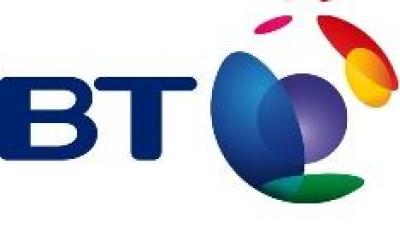BT workers have moved closer to strike action, as the Communications Workers Union rejected an improved pay offer from the firm’s management.
BT increased its offer, but the union, which represents more than 50,000 of its employees, says there was “no material change” to the deal, which amounts to a two percent increase in wages this year, followed by a three percent increase next year. The CWU will ballot its members on strike action.
Two percent is “unacceptable”
“As we’ve made clear, 2 percent is unacceptable for our members,” said CWU deputy general secretary Andy Kerr, “as it does not reflect the reward they expect given the contribution they have made to cost savings of £1.75 billion and profits of over £1 billion.”
The CWU says the offer is below inflation – which it puts at 5.3 percent – and also below very large salary rises and bonuses, which senior executives have awarded themselves, exposing “blatant double standards being adopted by the company,” said Kerr.
Although a strike looks increasingly likely, both sides say there could be further talks.
The CWU has said it is willing to meet BT if there is “scope for significantly improving” the current offer.
BT has said its door is “always open” but it wants to have talks “without pre-conditions from either side”. The company’s statement said: “BT has been flexible in these negotiations for many months now but the union have not moved from their initial claim of a 5 percent pay rise for this year alone… We have offered formal talks and remain hopeful that they will start to show flexibility in the way that BT has.”
For its part, the union says that the work force should get more recognition given the senior executives’ big rewards.
Although chief executive Ian Livingston has promised to take only a two percent pay rise, his basic pay plus bonus went up by 79 percent compared with 2009 and totals more than £2 million. Part-time chairman Sir Michael Rake’s £670,000 pay has gone up by 6.3 percent compared with last year, and Gavin Patterson, BT Retail chief executive, got 62 percent more.
Non-executive director (and former IT minister) Patricia Hewitt, who helps decide on BT executive rewards, saw her part-time pay go up from £75,000 to £128,000.
Impact on broadband
If the strike goes ahead it would impact “the laying and maintenance of phone and broadband lines and handling customer service and business calls”, the union states, delaying the provision of broadband which the new government has said is essential to “create a platform on which a whole generation of new businesses can thrive,” in the words of Culture Secretary Jeremy Hunt.
If strike action goes ahead it will be the first at BT for more than 20 years. “We’re obviously very disappointed that BT has not improved its pay offer of 2 percent despite their healthy profits this year,” said Andy Kerr, CWU deputy general secretary. “We now have no option than to put the wheels in motion to ballot all appropriate members in BT for strike action, which would be the first action of its kind in over 20 years.”
BT is not the only tech company to face strike action recently. HP has been involved in a dispute with staff belonging to the Public and Commercial Services (PCS) union, which had planned strike action. Last year unions also criticised Fujitsu UK for announcing plans to cut around 1200 jobs in its services arm, claiming that the moves were unnecessary given the company’s relatively healthy profits.





